Module 12 Unit 3 Language in use 课件(共44张PPT,内嵌音频) 2024-2025学年英语外研版九年级上册
文档属性
| 名称 | Module 12 Unit 3 Language in use 课件(共44张PPT,内嵌音频) 2024-2025学年英语外研版九年级上册 |
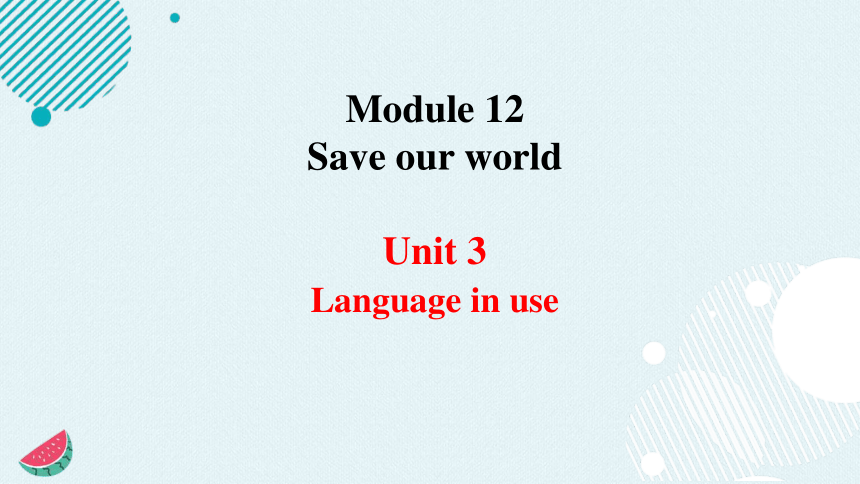
|
|
| 格式 | pptx | ||
| 文件大小 | 8.3MB | ||
| 资源类型 | 教案 | ||
| 版本资源 | 外研版 | ||
| 科目 | 英语 | ||
| 更新时间 | 2024-11-08 11:14:17 | ||
图片预览

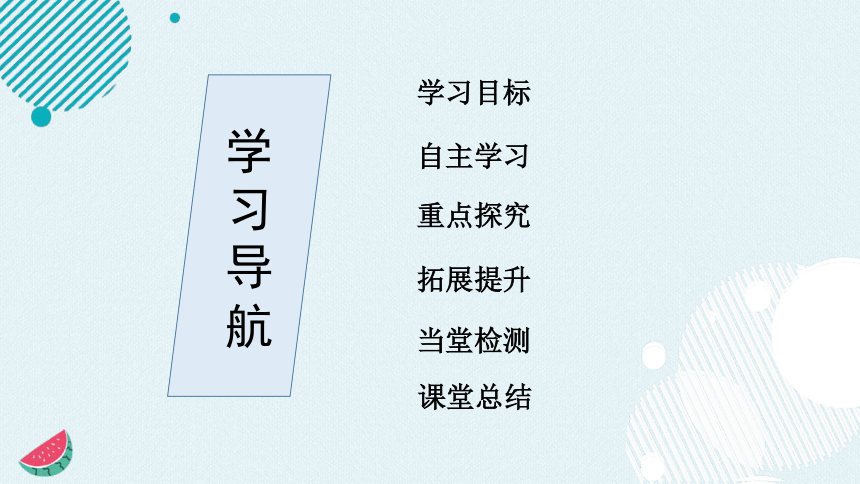
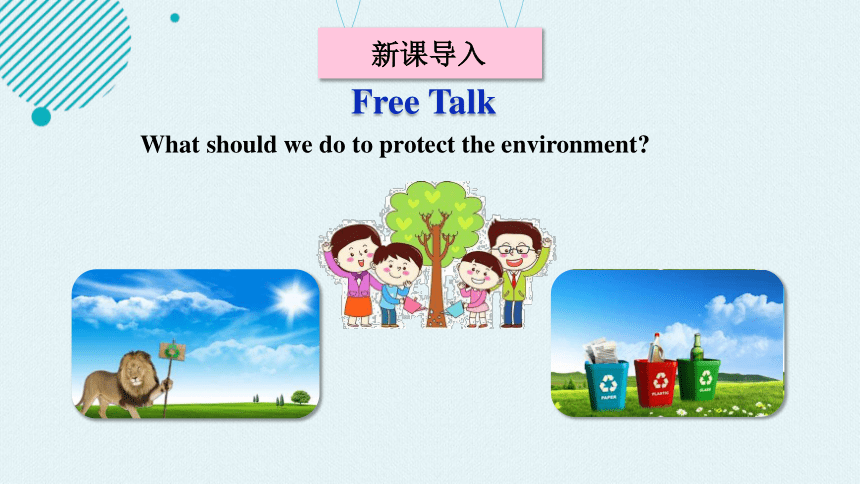
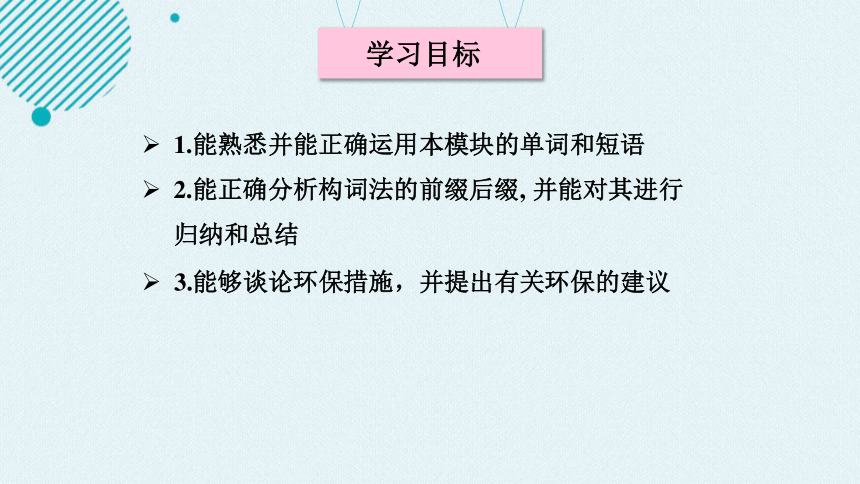
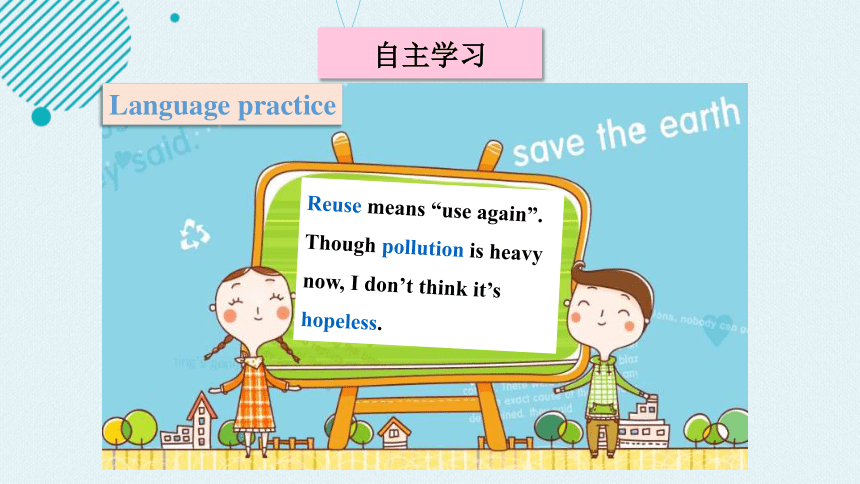
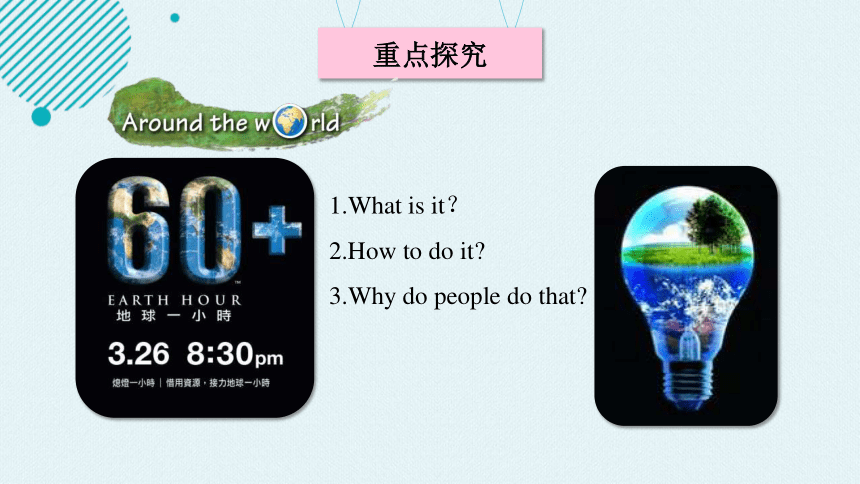
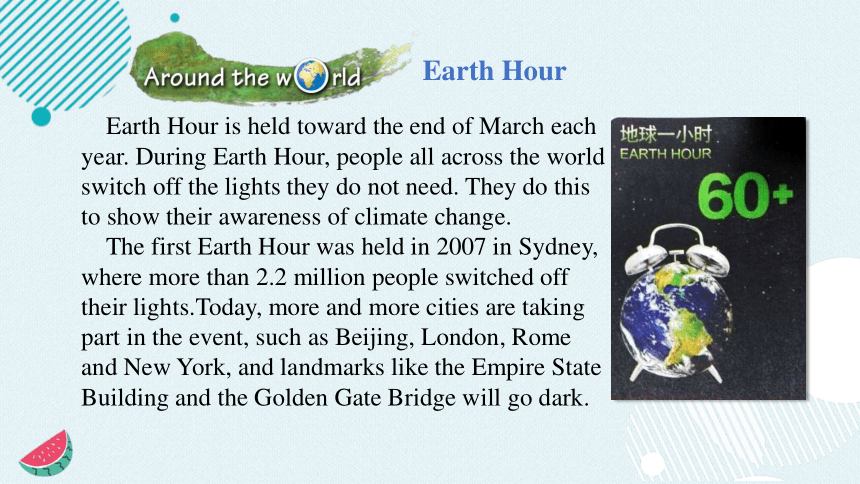
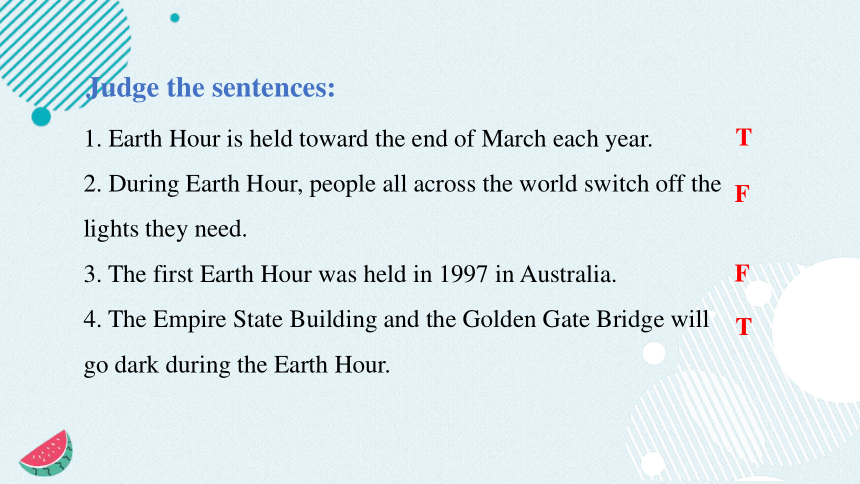
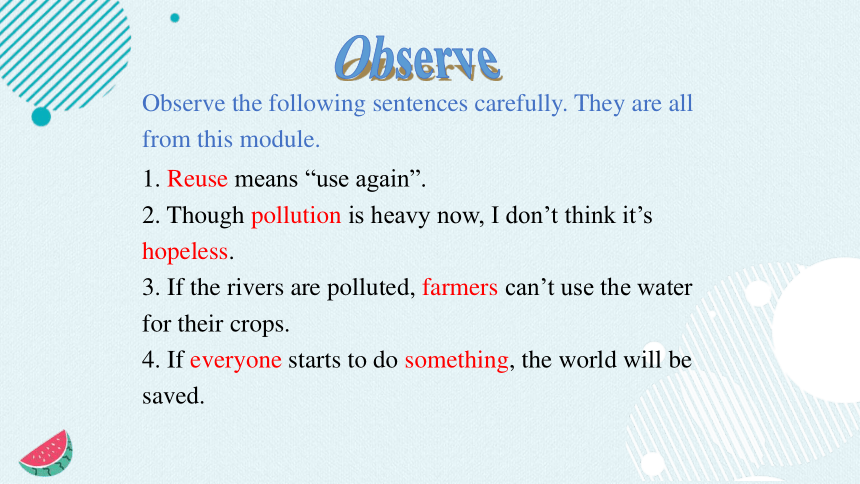
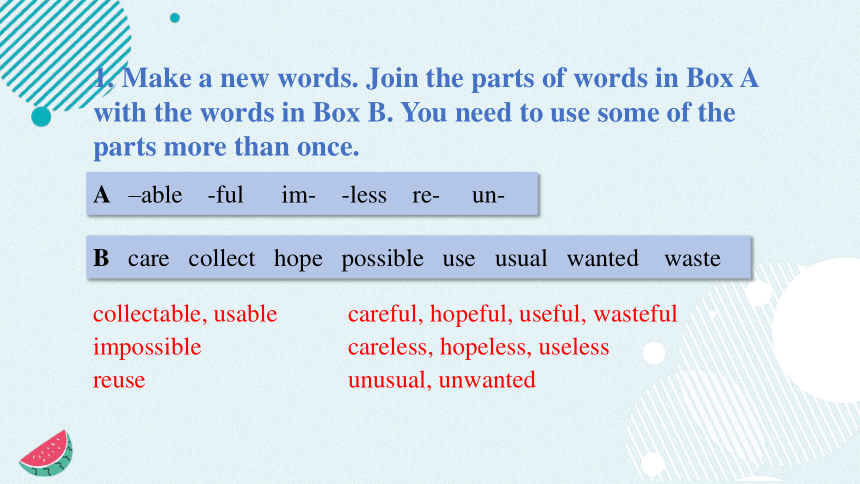
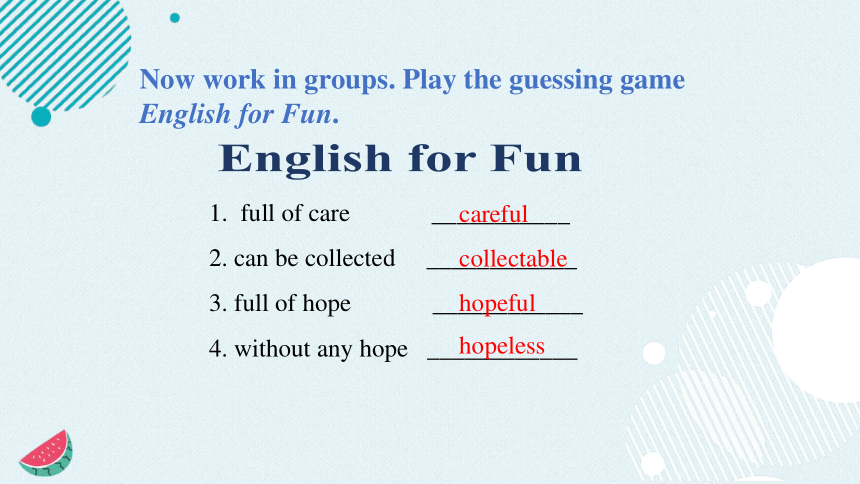
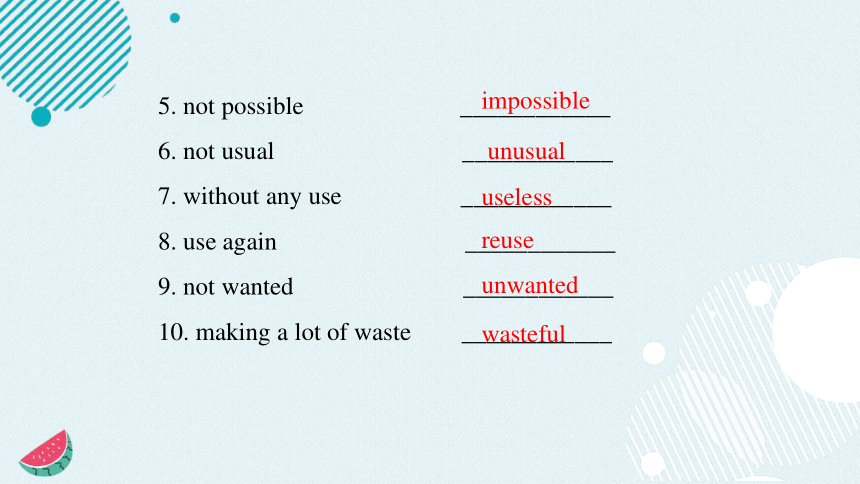
文档简介
(共44张PPT)
Module 12
Save our world
Unit 3
Language in use
学习目标
重点探究
自主学习
学习导航
当堂检测
课堂总结
拓展提升
新课导入
What should we do to protect the environment
Free Talk
学习目标
1.能熟悉并能正确运用本模块的单词和短语
2.能正确分析构词法的前缀后缀, 并能对其进行归纳和总结
3.能够谈论环保措施,并提出有关环保的建议
自主学习
Language practice
Reuse means “use again”.
Though pollution is heavy now, I don’t think it’s hopeless.
重点探究
1.What is it?
2.How to do it
3.Why do people do that
Earth Hour is held toward the end of March each year. During Earth Hour, people all across the world switch off the lights they do not need. They do this to show their awareness of climate change.
The first Earth Hour was held in 2007 in Sydney, where more than 2.2 million people switched off their lights.Today, more and more cities are taking part in the event, such as Beijing, London, Rome and New York, and landmarks like the Empire State Building and the Golden Gate Bridge will go dark.
Earth Hour
Judge the sentences:
F
T
F
1. Earth Hour is held toward the end of March each year.
2. During Earth Hour, people all across the world switch off the lights they need.
3. The first Earth Hour was held in 1997 in Australia.
4. The Empire State Building and the Golden Gate Bridge will go dark during the Earth Hour.
T
Observe
Observe the following sentences carefully. They are all from this module.
1. Reuse means “use again”.
2. Though pollution is heavy now, I don’t think it’s hopeless.
3. If the rivers are polluted, farmers can’t use the water for their crops.
4. If everyone starts to do something, the world will be saved.
1. Make a new words. Join the parts of words in Box A with the words in Box B. You need to use some of the parts more than once.
A –able -ful im- -less re- un-
B care collect hope possible use usual wanted waste
collectable, usable
impossible
reuse
careful, hopeful, useful, wasteful
careless, hopeless, useless
unusual, unwanted
Now work in groups. Play the guessing game English for Fun.
English for Fun
1. full of care ___________
2. can be collected ____________
3. full of hope ____________
4. without any hope ____________
careful
collectable
hopeful
hopeless
5. not possible ____________
6. not usual ____________
7. without any use ____________
8. use again ____________
9. not wanted ____________
10. making a lot of waste ____________
unusual
useless
reuse
unwanted
wasteful
impossible
Learning to learn
Sometimes if you know the meaning of the parts of a word, you can work out the meaning of the whole word.
re + new + able: re = again,
able = can be
renewable = can be new again
2. Complete the sentences with the words in the box.
1. Polluted water is ____________.
2. It is _________ to throw so much food away.
3. If you look after things well, you may ________ some of them later.
4. It is __________ to clean up the whole river in such a short time.
5. If we pay attention to pollution now, the future will be ________.
unhealthy
wasteful
reuse
impossible
hopeful
hopeful impossible reuse unhealthy wasteful
3. Complete the table.
Noun Verb Adjective Adverb
useful/useless
hope hopefully / hopelessly
pollution ——
water —— ——
waste
—— —— usually/ unusually
use
use
usefully/uselessly
hope
hopeful/hopeless
pollute
polluted/unpolluted
water
waste
wasteful/wasted
wastefully
usual/unusual
4. Complete the sentences with the correct form
of the words in Activity 3.
She was_________ that her new job would make her more successful.
hopeful
The factory _________the river, and the fish died.
2. We often walk in the countryside. It is a(n)_____ activity for us.
3. Do not use so much water. It is very __________.
4. To keep the flowers growing, you need to _____ them once a day.
polluted
usual
wasteful
water
5. Complete the sentences.
A lunchbox is a box that you keep your lunch in.
1. A ___________ is a card that you write on one side of and send to someone by post.
2. A ___________ is a room where you have classes at school.
3. A ___________ is a book that has one or more stories for children.
4. A ____________ is a black board that is used at school for writing on with chalk.
postcard
classroom
storybook
blackboard
6. Work in pairs. Look at the pictures and answer the questions.
1.What kinds of things can be recycled
2. How can these things be reused
3. How does this help the environment
4. Have you ever recycled or used things that can be recycled How
1.Paper, cloth and glass can be recycled.
2.They can be used more than one time.
3.We don’t need to cut down more trees to make paper if we reuse paper.
4.Yes, I have ever recycled to use paper cup for drinking.
7. Complete the conversation with the correct
form of the expressions in the box.
Mike: I hear you are off to the Caribbean for a holiday! Lucky you! But aren’t you (1) ____________ the pollution that such long plane journeys may cause for the environment
Ken: I know, but what can I do about it I’ve already tried my best to protect the environment. I recycle.
I don’t (2) ___________things if I don’t want them any more. I (3) ________the lights when I leave a room. Don’t tell me I shouldn’t travel by plane any more!
throw away
turn off
be good for, throw away, turn off, worry about
worried about
be good for, throw away, turn off, worry about
Mike: No, of course not. But we can do more to protect the environment. For example, we can help keep the air clean by planting trees. Trees (4) ____________the environment. In this way, we can reduce the harm of pollution.
Ken: Good! So I can enjoy my holiday, and when I come back, I’ll plant some trees!
Mike: That’s the idea! Maybe we can all join in and start a small forest!
are good for
Look and say:
I want to go to the Caribbean for a holiday.
Caribbean
I like traveling by plane.
travel by plane
We should plant more trees to keep the air clean.
plant trees
Everyone should do something for protecting the environment.
protect the environment
8. Listen and check (√)the true sentences.
It is OK to throw used things away. Looking after
them takes a lot of time.
2. Do not throw away things made of glass, plastic and paper, but recycle them when possible.
3. Take a bag when you go shopping.
4. Producing electricity and using oil will not cause pollution.
5. Turn off lights when you do not need them.
6. Ride a bike or walk, and do not often drive your car.
√
√
√
√
9. Listen again and complete the table.
Advice Reasons
1.Don’t throw away things made of ________________ ______, but_______them. Throwing things away is wasteful.
2 ______your plastic bags when you can and __________ with you when you go shopping. Plastic bags ___________ recycle.
glass, plastic and
paper
recycle
take a bag
are hard to
Reuse
Advice Reasons
3. Use less electricity and oil to_________________. 4. Don’t leave lights on and _________________. 5. __________________ and do not often drive your car. Producing electricity
and using oil may
cause ________________
________________
_________________.
reduce pollution
waste electricity
Walk or cycle
pollution to air, water
and earth in many
different ways
10. Work in groups. Decide what kind of pollution you want to talk about.
Choose a subject that you care about the most. It could be water pollution, air pollution, etc.
Find out more information about your subject. Look it up on a website or in a book.
11. Discuss your subject.
12. Present your group’s ideas to the whole class.
● Take turns to say what you think about the problem
and what can be done.
● Listen to what others say. If you agree with what they
have said, say “I agree”, “That’s true” or “That’s a
good point”; if you do not agree with what someone
says, say “I’m sorry, but I don’t agree. I think that…”
Possible answer
Yes, I agree with you that air pollution is one of the most serious problems. A great deal of energy is needed to run the factories of modern industrial nations. Automobile, trains, planes and busses need energy, too. Nearly all of this energy is produced by burning fuels. The burning produces wastes, some of which remain in the air, causing air pollution.
Scientists are finding ways to stop air pollution especially in big industrial areas and densely-populated cities. They are studying new ways of generating electricity that may be less damaging to the environment. At the same time, many power plants are being modernized to give off less polluted material. Also, engineers try to design and locate new power plants to do minimum damage to the environment.
However, it may be that we still have a long way to go before we have a "clean" world. Nearly all of the countries are trying hard to prevent and control air pollution. There indeed seems to be no end to tasks that environmentalists will be required to do. People will continually find new ways to control pollution.
拓展提升
一、合成词构词法
英语中构成新词最基本的方法有三种:合成法,缩略法和词缀法。合成词构词法就是将两个独立的单词合在一起构成一个新的单词。
1.合成法是一种比较灵活的构词方法,可以合成名词、形容词、副词、代词、动词等。
(1)合成名词:
sun + light = sunlight(阳光)
black + board = blackboard(黑板)
(2)合成形容词:
well + known = well-known(著名的)
hard + working = hard-working(勤奋的)
world + famous = world-famous(世界闻名的)
(3)合成副词:
up + stair = upstairs(在楼上)
down + stair = downstairs(在楼下)
(4)合成代词:
some + thing = something(某事)
any + body = anybody(任何人)
(5)合成动词:
under + stand = understand(理解)
type + write = typewrite(打字)
在一个单词前或后加上一个词缀,就可以构成一个新词。 根据词缀的位置,分为前缀和后缀两种。掌握一些常见的词缀,对单词的记忆和理解有很大的帮助。比如:我们学会care, 就能掌握careful, careless, carefully, carelessly。下面我们来学习几个常见的前、后缀:
二、前缀,后缀构词法
词根 re- in(m)- un- dis- mis-
意义 再/又 不/无 不/无 不/无 错误地
例子 rewrite incorrect uneasy dislike mislead,
reuse impossible impolite untrue disagree mis-
understand
前缀:
词根 inter- super- en- anti-
意义 互相 超 使……处于某种状态 反对;防止
例子 inter- national superman enable anti-war
internet supermarket superstar enrich anti-pollution
后缀 功能 例词
-er, -or 构成名词 teacher, worker
-ian musician
-ing building, painting
-ist artist, scientist
-ment 构成名词 agreement, government
-ness happiness, illness
-th truth, warmth
-tion competition, education
-ty activity, safety
后缀:
后缀 功能 例词
-able, -ible 构成形容词 comfortable, possible
-al national, traditional
-ful careful, helpful,
-ive active, expensive
-less careless, useless
-ly friendly, lovely
-ous dangerous, famous
后缀 功能 例词
-teen 构成数词 eighteen, fifteen, seventeen
-th fifteenth, fifth, fortieth, seventh
-ty forty, sixty, twenty
-ly 构成副词 badly, carefully, happily, quickly
当堂检测
一、用所给词的适当形式填空。
1. My friends and I would like to help the ________(home) people as volunteers after the terrible earthquake.
2. We should act together to do some useful things like collecting ________ (reuse) waste.
3.We watched until the train __________(appear) from our view.
4. If we pay attention to the pollution now, the future will be _______ (hope).
reusable
hopeful
disappeared
homeless
当堂检测
二、根据句意及汉语提示完成句子。
1. Don't throw the ________(瓶). It can be recycled.
2.If you want to make a lantern, you can follow the five ________(步骤).
3.Our teacher ________ (分开) us into 6 groups yesterday.
4. It is our duty not to _______(污染) our environment.
bottle
steps
divided
pollute
课堂总结
Module 12
Unit 3
1.初步了解构词法:
合成词构词法、前缀后缀构词法
2.简单介绍环保举措,提出有关环保的一些建议
重点单词和短语:
hopeful, impossible, reuse, unhealthy, wasteful, be good for, throw away, turn off, worry about等
Module 12
Save our world
Unit 3
Language in use
学习目标
重点探究
自主学习
学习导航
当堂检测
课堂总结
拓展提升
新课导入
What should we do to protect the environment
Free Talk
学习目标
1.能熟悉并能正确运用本模块的单词和短语
2.能正确分析构词法的前缀后缀, 并能对其进行归纳和总结
3.能够谈论环保措施,并提出有关环保的建议
自主学习
Language practice
Reuse means “use again”.
Though pollution is heavy now, I don’t think it’s hopeless.
重点探究
1.What is it?
2.How to do it
3.Why do people do that
Earth Hour is held toward the end of March each year. During Earth Hour, people all across the world switch off the lights they do not need. They do this to show their awareness of climate change.
The first Earth Hour was held in 2007 in Sydney, where more than 2.2 million people switched off their lights.Today, more and more cities are taking part in the event, such as Beijing, London, Rome and New York, and landmarks like the Empire State Building and the Golden Gate Bridge will go dark.
Earth Hour
Judge the sentences:
F
T
F
1. Earth Hour is held toward the end of March each year.
2. During Earth Hour, people all across the world switch off the lights they need.
3. The first Earth Hour was held in 1997 in Australia.
4. The Empire State Building and the Golden Gate Bridge will go dark during the Earth Hour.
T
Observe
Observe the following sentences carefully. They are all from this module.
1. Reuse means “use again”.
2. Though pollution is heavy now, I don’t think it’s hopeless.
3. If the rivers are polluted, farmers can’t use the water for their crops.
4. If everyone starts to do something, the world will be saved.
1. Make a new words. Join the parts of words in Box A with the words in Box B. You need to use some of the parts more than once.
A –able -ful im- -less re- un-
B care collect hope possible use usual wanted waste
collectable, usable
impossible
reuse
careful, hopeful, useful, wasteful
careless, hopeless, useless
unusual, unwanted
Now work in groups. Play the guessing game English for Fun.
English for Fun
1. full of care ___________
2. can be collected ____________
3. full of hope ____________
4. without any hope ____________
careful
collectable
hopeful
hopeless
5. not possible ____________
6. not usual ____________
7. without any use ____________
8. use again ____________
9. not wanted ____________
10. making a lot of waste ____________
unusual
useless
reuse
unwanted
wasteful
impossible
Learning to learn
Sometimes if you know the meaning of the parts of a word, you can work out the meaning of the whole word.
re + new + able: re = again,
able = can be
renewable = can be new again
2. Complete the sentences with the words in the box.
1. Polluted water is ____________.
2. It is _________ to throw so much food away.
3. If you look after things well, you may ________ some of them later.
4. It is __________ to clean up the whole river in such a short time.
5. If we pay attention to pollution now, the future will be ________.
unhealthy
wasteful
reuse
impossible
hopeful
hopeful impossible reuse unhealthy wasteful
3. Complete the table.
Noun Verb Adjective Adverb
useful/useless
hope hopefully / hopelessly
pollution ——
water —— ——
waste
—— —— usually/ unusually
use
use
usefully/uselessly
hope
hopeful/hopeless
pollute
polluted/unpolluted
water
waste
wasteful/wasted
wastefully
usual/unusual
4. Complete the sentences with the correct form
of the words in Activity 3.
She was_________ that her new job would make her more successful.
hopeful
The factory _________the river, and the fish died.
2. We often walk in the countryside. It is a(n)_____ activity for us.
3. Do not use so much water. It is very __________.
4. To keep the flowers growing, you need to _____ them once a day.
polluted
usual
wasteful
water
5. Complete the sentences.
A lunchbox is a box that you keep your lunch in.
1. A ___________ is a card that you write on one side of and send to someone by post.
2. A ___________ is a room where you have classes at school.
3. A ___________ is a book that has one or more stories for children.
4. A ____________ is a black board that is used at school for writing on with chalk.
postcard
classroom
storybook
blackboard
6. Work in pairs. Look at the pictures and answer the questions.
1.What kinds of things can be recycled
2. How can these things be reused
3. How does this help the environment
4. Have you ever recycled or used things that can be recycled How
1.Paper, cloth and glass can be recycled.
2.They can be used more than one time.
3.We don’t need to cut down more trees to make paper if we reuse paper.
4.Yes, I have ever recycled to use paper cup for drinking.
7. Complete the conversation with the correct
form of the expressions in the box.
Mike: I hear you are off to the Caribbean for a holiday! Lucky you! But aren’t you (1) ____________ the pollution that such long plane journeys may cause for the environment
Ken: I know, but what can I do about it I’ve already tried my best to protect the environment. I recycle.
I don’t (2) ___________things if I don’t want them any more. I (3) ________the lights when I leave a room. Don’t tell me I shouldn’t travel by plane any more!
throw away
turn off
be good for, throw away, turn off, worry about
worried about
be good for, throw away, turn off, worry about
Mike: No, of course not. But we can do more to protect the environment. For example, we can help keep the air clean by planting trees. Trees (4) ____________the environment. In this way, we can reduce the harm of pollution.
Ken: Good! So I can enjoy my holiday, and when I come back, I’ll plant some trees!
Mike: That’s the idea! Maybe we can all join in and start a small forest!
are good for
Look and say:
I want to go to the Caribbean for a holiday.
Caribbean
I like traveling by plane.
travel by plane
We should plant more trees to keep the air clean.
plant trees
Everyone should do something for protecting the environment.
protect the environment
8. Listen and check (√)the true sentences.
It is OK to throw used things away. Looking after
them takes a lot of time.
2. Do not throw away things made of glass, plastic and paper, but recycle them when possible.
3. Take a bag when you go shopping.
4. Producing electricity and using oil will not cause pollution.
5. Turn off lights when you do not need them.
6. Ride a bike or walk, and do not often drive your car.
√
√
√
√
9. Listen again and complete the table.
Advice Reasons
1.Don’t throw away things made of ________________ ______, but_______them. Throwing things away is wasteful.
2 ______your plastic bags when you can and __________ with you when you go shopping. Plastic bags ___________ recycle.
glass, plastic and
paper
recycle
take a bag
are hard to
Reuse
Advice Reasons
3. Use less electricity and oil to_________________. 4. Don’t leave lights on and _________________. 5. __________________ and do not often drive your car. Producing electricity
and using oil may
cause ________________
________________
_________________.
reduce pollution
waste electricity
Walk or cycle
pollution to air, water
and earth in many
different ways
10. Work in groups. Decide what kind of pollution you want to talk about.
Choose a subject that you care about the most. It could be water pollution, air pollution, etc.
Find out more information about your subject. Look it up on a website or in a book.
11. Discuss your subject.
12. Present your group’s ideas to the whole class.
● Take turns to say what you think about the problem
and what can be done.
● Listen to what others say. If you agree with what they
have said, say “I agree”, “That’s true” or “That’s a
good point”; if you do not agree with what someone
says, say “I’m sorry, but I don’t agree. I think that…”
Possible answer
Yes, I agree with you that air pollution is one of the most serious problems. A great deal of energy is needed to run the factories of modern industrial nations. Automobile, trains, planes and busses need energy, too. Nearly all of this energy is produced by burning fuels. The burning produces wastes, some of which remain in the air, causing air pollution.
Scientists are finding ways to stop air pollution especially in big industrial areas and densely-populated cities. They are studying new ways of generating electricity that may be less damaging to the environment. At the same time, many power plants are being modernized to give off less polluted material. Also, engineers try to design and locate new power plants to do minimum damage to the environment.
However, it may be that we still have a long way to go before we have a "clean" world. Nearly all of the countries are trying hard to prevent and control air pollution. There indeed seems to be no end to tasks that environmentalists will be required to do. People will continually find new ways to control pollution.
拓展提升
一、合成词构词法
英语中构成新词最基本的方法有三种:合成法,缩略法和词缀法。合成词构词法就是将两个独立的单词合在一起构成一个新的单词。
1.合成法是一种比较灵活的构词方法,可以合成名词、形容词、副词、代词、动词等。
(1)合成名词:
sun + light = sunlight(阳光)
black + board = blackboard(黑板)
(2)合成形容词:
well + known = well-known(著名的)
hard + working = hard-working(勤奋的)
world + famous = world-famous(世界闻名的)
(3)合成副词:
up + stair = upstairs(在楼上)
down + stair = downstairs(在楼下)
(4)合成代词:
some + thing = something(某事)
any + body = anybody(任何人)
(5)合成动词:
under + stand = understand(理解)
type + write = typewrite(打字)
在一个单词前或后加上一个词缀,就可以构成一个新词。 根据词缀的位置,分为前缀和后缀两种。掌握一些常见的词缀,对单词的记忆和理解有很大的帮助。比如:我们学会care, 就能掌握careful, careless, carefully, carelessly。下面我们来学习几个常见的前、后缀:
二、前缀,后缀构词法
词根 re- in(m)- un- dis- mis-
意义 再/又 不/无 不/无 不/无 错误地
例子 rewrite incorrect uneasy dislike mislead,
reuse impossible impolite untrue disagree mis-
understand
前缀:
词根 inter- super- en- anti-
意义 互相 超 使……处于某种状态 反对;防止
例子 inter- national superman enable anti-war
internet supermarket superstar enrich anti-pollution
后缀 功能 例词
-er, -or 构成名词 teacher, worker
-ian musician
-ing building, painting
-ist artist, scientist
-ment 构成名词 agreement, government
-ness happiness, illness
-th truth, warmth
-tion competition, education
-ty activity, safety
后缀:
后缀 功能 例词
-able, -ible 构成形容词 comfortable, possible
-al national, traditional
-ful careful, helpful,
-ive active, expensive
-less careless, useless
-ly friendly, lovely
-ous dangerous, famous
后缀 功能 例词
-teen 构成数词 eighteen, fifteen, seventeen
-th fifteenth, fifth, fortieth, seventh
-ty forty, sixty, twenty
-ly 构成副词 badly, carefully, happily, quickly
当堂检测
一、用所给词的适当形式填空。
1. My friends and I would like to help the ________(home) people as volunteers after the terrible earthquake.
2. We should act together to do some useful things like collecting ________ (reuse) waste.
3.We watched until the train __________(appear) from our view.
4. If we pay attention to the pollution now, the future will be _______ (hope).
reusable
hopeful
disappeared
homeless
当堂检测
二、根据句意及汉语提示完成句子。
1. Don't throw the ________(瓶). It can be recycled.
2.If you want to make a lantern, you can follow the five ________(步骤).
3.Our teacher ________ (分开) us into 6 groups yesterday.
4. It is our duty not to _______(污染) our environment.
bottle
steps
divided
pollute
课堂总结
Module 12
Unit 3
1.初步了解构词法:
合成词构词法、前缀后缀构词法
2.简单介绍环保举措,提出有关环保的一些建议
重点单词和短语:
hopeful, impossible, reuse, unhealthy, wasteful, be good for, throw away, turn off, worry about等
同课章节目录
- Module 1 Wonders of the world
- Unit 1 It's more than 2,000 years old.
- Unit 2 The Grand Canyon was not just big.
- Unit 3 Language in use
- Module 2 Public holidays
- Unit 1 My family always go somewhere interesting a
- Unit 2 We have celebrated the festival since the f
- Unit 3 Language in use
- Module 3 Heroes
- Unit 1 She trained hard,so she became a great play
- Unit 2There were few doctors, so he had to work ve
- Unit 3 Language in use
- Module 4 Home alone
- Unit 1 I can look after myself, although it won’t
- Unit 2 I became so bored with their orders that I
- Unit 3 Language in use
- Module 5 Museums
- Unit 1 Don't cross that rope!
- Unit 2 If you ever go to London, make sure you vis
- Unit 3 Language in use
- Module 6 Problems
- Unit 1 If I start after dinner, I'll finish it be
- Unit 2 If you tell him the truth now, you will sho
- Unit 3 Language in use
- Revision Module A
- Module 7 Great books
- Unit 1 We're still influenced by Confucius's idea
- Unit 2 It is still read and loved.
- Unit 3 Language in use
- Module 8 Sports life
- Unit 1 Daming wasn't chosen for the team last time
- Unit 2 He was invited to competitions around the w
- Unit 3 Language in use
- Module 9 Great inventions
- Unit 1 Will computers be used more than books in t
- Unit 2 Will books be replaced by the Internet?
- Unit 3 Language in use
- Module 10 Australia
- Unit 1 I have some photos that I took in Australia
- Unit 2 The game that they like most is Australian
- Unit 3 Language in use
- Module 11 Photos
- Unit 1 He's the boy who won the photo competition
- Unit 2 The photo which we liked best was taken by
- Unit 3 Language in use
- Module 12 Save our world
- Unit 1 If everyone starts to do something, the wor
- Unit 2 Repeat these three words daily: reduce, reu
- Unit 3 Language in use
- Revision Module B
